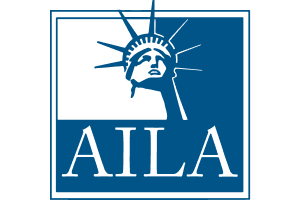Hardship And Persecution Waivers
Options For J-1 Physicians And Other Hardship And Persecution Waivers
One Method for a J-1 Physician to obtain a waiver of the foreign residency requirement is to obtain a “hardship” waiver. Hardship waivers are based on a showing of exceptional hardship, not merely a showing that conditions are more difficult in the individual’s home country. The requisite hardship must not be for the J-1 visa holder, but rather to a U.S. Citizen or Permanent Resident spouse or child of the J-1 visa holder.
Hardship factors may include:
- economic hardships
- political hardships
- religious hardships
- hardships caused by dangerous environment in the home country
- medical hardships
- social hardships
- psychological hardships
- and other hardships
Again, the BCIS must find that the hardship is exceptional not the normal hardship that satisfaction of the two-year requirement would impose on anyone. The strongest cases often involve situations where the U.S. Citizen or Legal Permanent Resident has a medical condition, or an English language disability or psychological vulnerability that would be exacerbated in the J-1 visa holder’s home country. Other strong cases exist where the Department of State lists the home country as dangerous for U.S. Citizens who would travel there.
In processing an application for hardship waiver, the case is submitted directly to the BCIS. After the BCIS makes a preliminary determination of hardship, the case is forwarded to the Waiver Review Branch of the United States Department of State (formerly USIA). In making this determination, the Waiver Review Branch will weigh the hardship to the U.S. Citizen or Permanent Resident against the policy underlying the exchange visitor program. Normally, however, the DOS concurs with BCIS’s determination. After DOS’s concurrence, the BCIS issues the final approval.
Persecution Waivers
A persecution waiver may be available to a J-1 if a “well founded fear of persecution” can be established. The fear of persecution must be as a result of the alien’s membership in an established group such as a religious, ethnic, political, or professional group. There is no requirement that the alien have a spouse or child who is a U.S. Citizen or Legal Permanent Resident. In some cases it is appropriate to file simultaneous petitions under both the hardship and persecution categories.
Unlike waivers to work in underserved areas, approval of a hardship or persecution waiver does not require the J-1 visa holder to work in an H-1B for three years. Nor must a recipient of a hardship waiver work in a particular location of the United States. Rather, the waiver recipient may apply directly for permanent residency if there is affirmative basis for such an application. However, the waiver only is waives the two-year home residency requirement. It does not confer permanent residency status nor any type of work authorization. Permanent residency and work authorization must be made in a separate application.
Processing time for waiver applications may be substantial, often taking one year or more.


